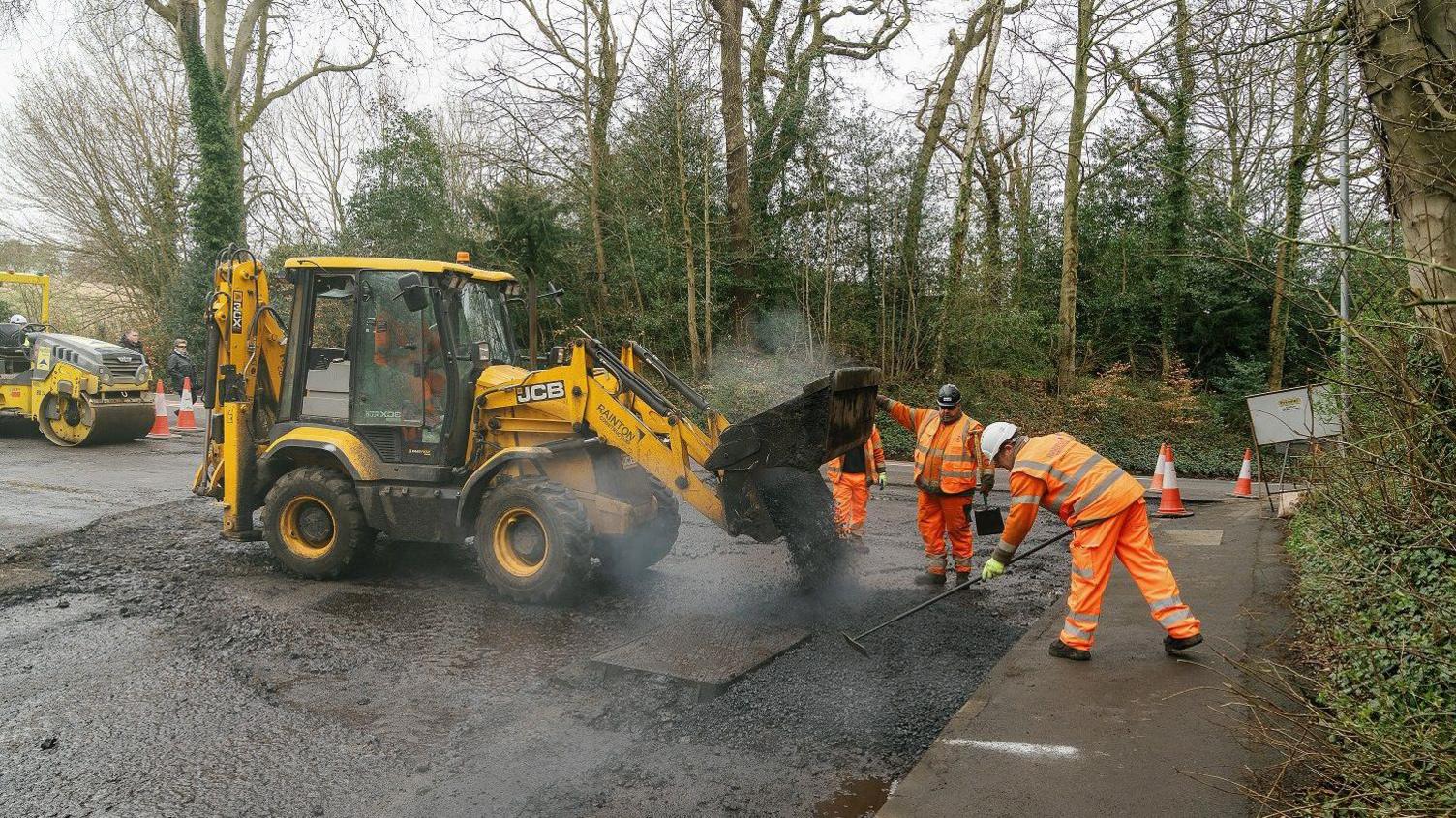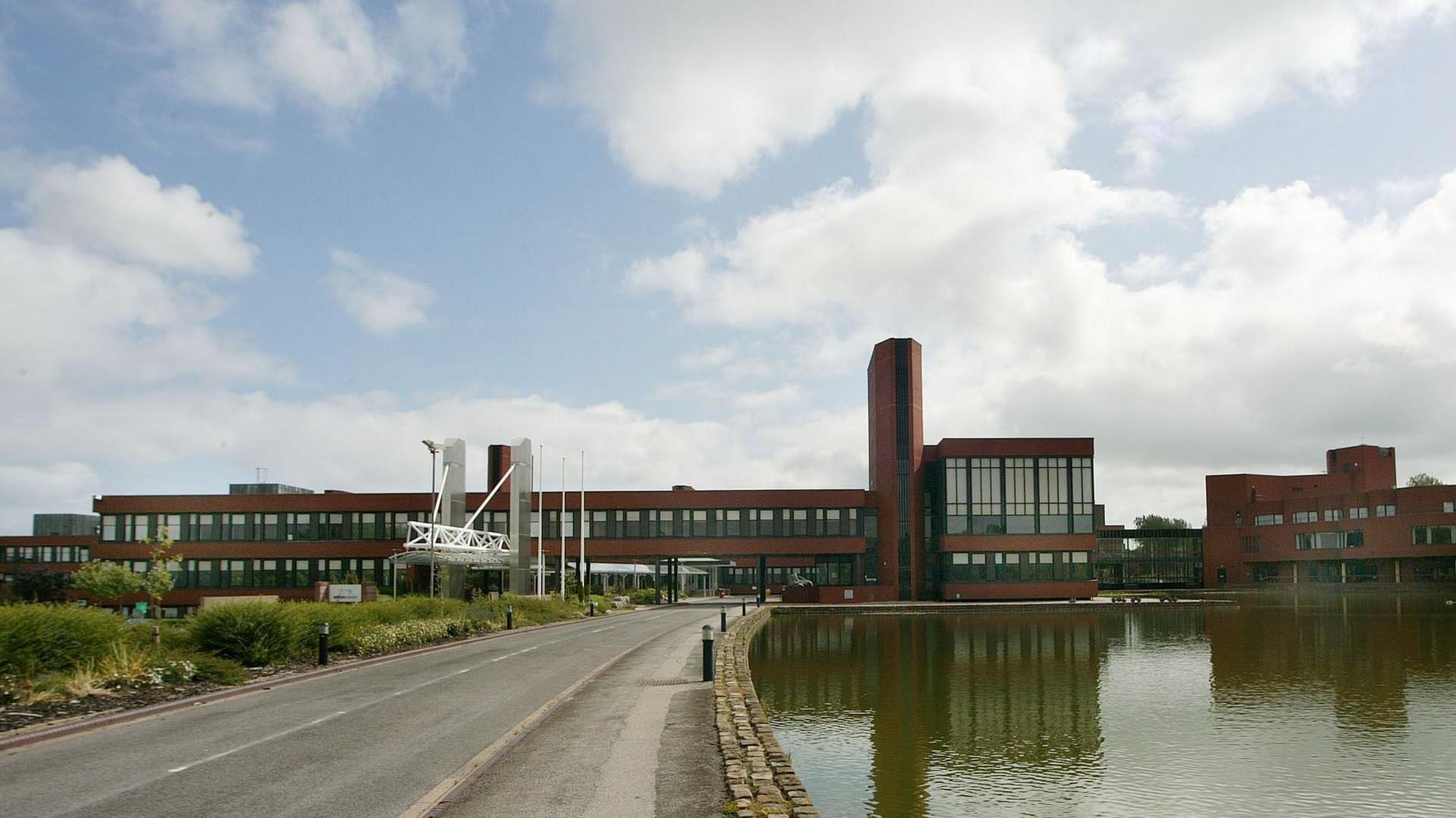New low carbon material used in road resurfacing

It is the first time the material has been used in a real-world project
- Published
A new material has been used to reduce the carbon footprint of road resurfacing.
It is being laid on Elvet Hill in Durham, sandwiched between two traditional surfacing layers.
Known as ACLA, it traps more carbon dioxide than it releases, manufacturer Low Carbon Materials (LCM) said.
Durham County Council said the material would play a "key role in carbon reduction".
LCM head of operations Jonathan Duckmanton said ACLA consisted of materials which had already removed carbon dioxide from the atmosphere.
He declined to name them for reasons of commercial confidentiality.
"We're kind of then locking [this carbon] away in the road," he said.
This reduced the carbon emissions linked with resurfacing the road, Mr Duckmanton added.
'Innovative' solution
The Seaham-based firm is hoping to use ACLA more widely around the country.
Alan Patrickson, corporate director for neighbourhoods and climate change at Durham County Council, called the project “innovative” and said it would play an important role in carbon reduction.
National Highways has committed to net zero emissions from construction and maintenance activity by 2040, external.
Other companies' low carbon alternatives to traditional road surfacing materials are being trialled, including one laid in January on the M65 in Lancashire.
Follow BBC North East on X (formerly Twitter), external, Facebook, external and Instagram, external. Send your story ideas to northeastandcumbria@bbc.co.uk.
Related topics
More stories from BBC North East and Cumbria
- Published14 March 2024
